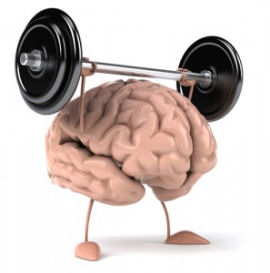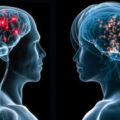
Brain-training companies claim scientific studies back the effectiveness of their programs, but according to a new report, most studies like these have a critical flaw – they do not account for the placebo effect. The new report appears in the journal Perspectives on Psychological Science.
The researchers behind the critique, from the University of Illinois and Florida State University, point out that in a clinical trial for a new drug, some participants receive the drug while others receive an identical-looking pill that is a placebo. But, the researchers argue, in most psychology interventions, participants know what’s in their “pill.”
“It’s not possible to use a brain-training program for 10 hours without knowing the type of training you received,” said Daniel Simons, from the University of Illinois. “People can form expectations for what will improve based on their experiences with the training tasks, and the existence of differences in expectations between people in treatment and control groups potentially undermines any claim that improvements were due to the treatment itself. Not one of the studies cited by the brain-training companies looks at differing expectations between the groups.”
Simons argues that merely having an “active control group” (one that does something for the same amount of time as the treatment group) does not protect against the placebo effect. “A treatment group that completes an intensive memory-training regimen might expect improved performance on other cognitive tasks assessing memory,” he explained. “A control group that does crossword puzzles or watches DVDs for the same amount of time likely won’t expect the same amount of improvement on the same tasks. These problems are not limited to brain-training studies. They hold true for almost all intervention studies.”
To illustrate the pervasiveness of this problem, the researchers examined expectations for improvement in studies of the effect of playing action video games on measures of perception and attention.
“Such studies find greater improvements in performance on attention and perception tasks after training with action video games than after training with non-action games for the same amount of time,” said co-researcher Walter Boot, from Florida State. “However, even with this sort of active control condition, these interventions still are at risk for differential placebo effects.”
For the investigation, the researchers measured expectations in two survey studies involving 200 participants each. Participants watched either a short video of an action game (“Unreal Tournament”) or one of the games commonly used as controls in these studies (“Tetris” or “The Sims”). They then read descriptions of the cognitive tests used in the studies, watched short videos of the tests, and answered questions about whether they thought their performance on the tests would improve as a result of training on the video game they had viewed.
The results showed that expectations for improvement were greater for the action-game group than for the control games on exactly the same tests that showed bigger improvements for action-game training in the intervention studies. In fact, the pattern of expected improvements exactly matched actual improvements seen in video game intervention studies, the researchers found.
Simons believes his group’s findings have broad implications for the analysis of the effectiveness of psychological interventions. “We don’t want to recommend new therapies, change school curricula, or encourage the elderly to buy brain-training games if the benefits are just due to expectations for improvement. If expectations for improvement align perfectly with the actual improvements, then any claim that the treatment was effective is premature. Only by using better active controls that equate for expectations can we draw definitive conclusions about the effectiveness of any intervention.”
Related:
Discuss this article in our forum
Expensive Placebo Works Better Than Cheap One
Antidepressant use primes brain for placebo effect
Automated Matrix-style learning demonstrated
Placebo Surgery Shows Surprising Results








Comments are closed.